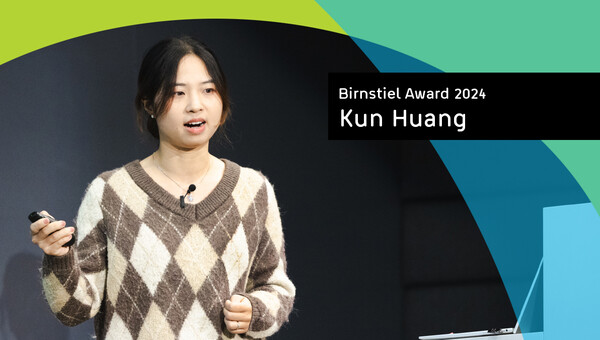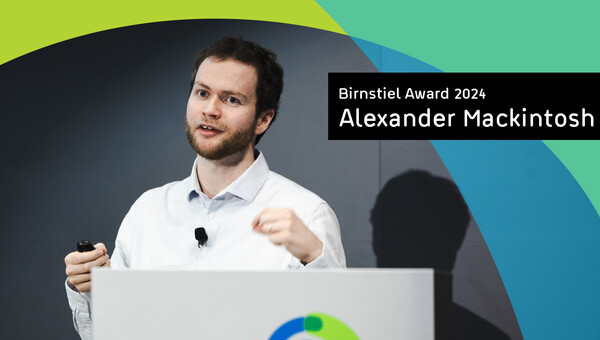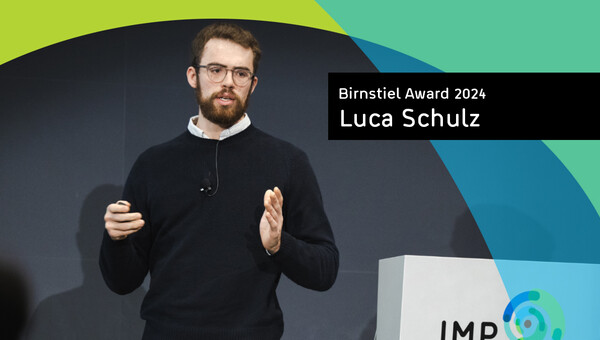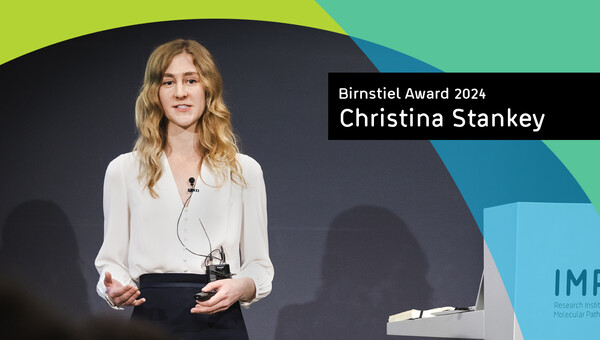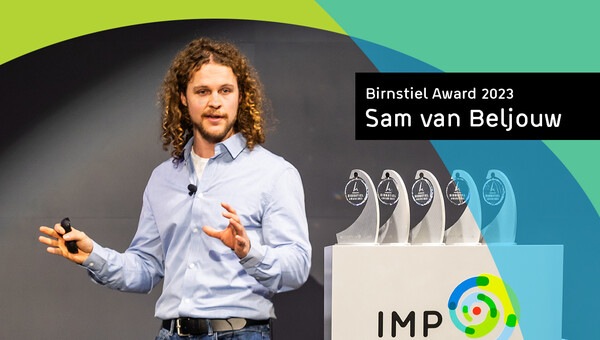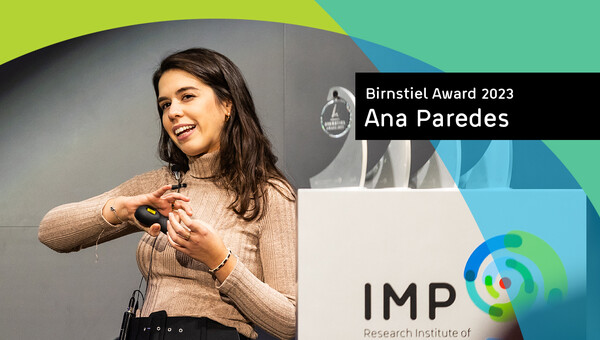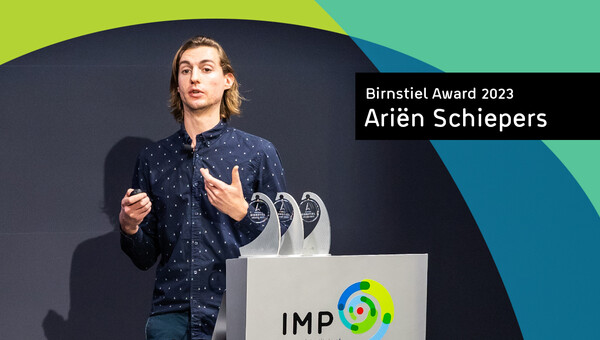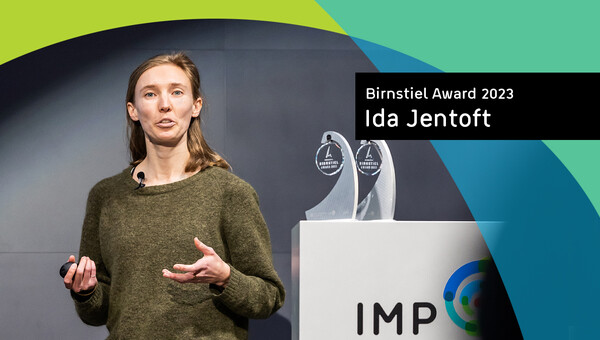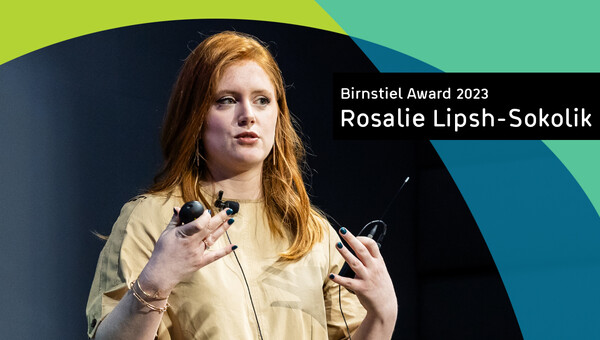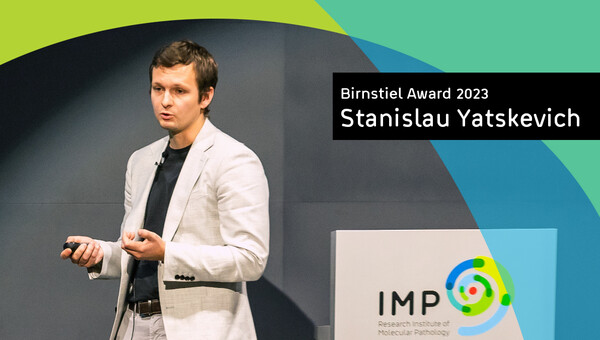Recipients of the International Birnstiel Award for Doctoral Research in Molecular Life Sciences present their work, usually in the frame of the award ceremony. These talks are recorded in order to make them available to broader audiences.
Talks of 2024
Kun Huang (CAS Center for Excellence of Plant Molecular Sciences, Yu Zhang lab)
Pol IV and RDR2: A two-RNA-polymerase machine that produces dsRNA.
Alexander Mackintosh (University of Edinburgh, Konrad Lohse lab)
The role of chromosome rearrangements in speciation.
Irmantas Mogila (Vilnius University Life Sciences Center, Gintautas Tamulaitis lab)
Translation inhibition in CRISPR-Cas defence.
Luca Schulz (Max Planck Institute for Terrestrial Microbiology, Tobias Erb Lab)
Evolution of complexity in Rubisco.
Christina Stankey (Francis Crick Institute, James Lee lab)
Resolving genetic mechanisms of inflammatory diseases in macrophages.
Talks of 2023
Sam van Beljouw (TU Delft, Stan Brouns Lab)
The discovery of an RNA-regulated CRISPR protease.
Ana Paredes (CNIC, Mercedes Ricote Lab)
Maternal Milk: Fuelling cardiac metabolic maturation in newborn mice.
Ariën Schiepers (Rockefeller University, Gabriel Victora)
Molecular fate-mapping of serum antibodies and 'Original Antigenic Sin'.
Ida Jentoft (MPI for Multidisciplinary Sciences, Melina Schuh Lab)
Mammalian oocytes store proteins for the early embryo on cytoplasmic lattices.
Rosalie Lipsh-Sokolik (Weizmann Institute of Science Research, Michael Fainzilber Lab)
Combinatorial assembly and design of enzymes.
Stanislau Yatskevich (MRC LMB/University of Cambridge), David Barford Lab
Molecular mechanisms of chromosome segregation.
Talks of 2022
Marta Seczynska (University of Cambridge, Paul Lehner Lab)
HUSHing up genetic invaders: epigenetic repression of intronless mobile elements by the HUSH complex.
Ioannis Sarropoulos (Heidelberg University, Henrik Kaessmann Lab)
Non-coding genome contributions to the development and evolution of mammalian organs.
Michael Skinnider (Michael Skinnider, University of British Columbia, Leonard Foster Lab)
Machine learning for biological mass spectrometry.
Christy Hong (Christy Hong, UMCG, Floris Foijer Lab)
cGAS-STING driven IL6 signaling is crucial for the survival of cancer cells undergoing CIN.
Margarete Diaz Cuadros (Harvard Medical School, Olivier Pourquie Lab)
Metabolic regulation of developmental rate in mouse and human cells.
Talks of 2021
Sanne Boersma (Hubrecht Instiutte/Oncode Institute, Marvin Tanenbaum Lab)
Spying on Viruses: Translation and Replication Dynamics of Single +RNA Viruses.
Fanny Matheis (The Rockefeller University, Daniel Mucida Lab)
Interactions between microbial, neuronal, and immune cells in the digestive system.
Adi Millman (Weizmann Instiutte of Science, Rotem Sorek Lab)
Bacterial Retrons Function in Anti-Phage Defense.
Sanne van Neerven (Amsterdam University Medical Centers / Oncode Insitute, Louis Vermeulen)
Apc-mutant cells act as supercompetitors in intestinal tumour initiation.
Kristina Stapornwongkul (University College London / The Francis Crick Institute, Jean-Paul Vincent Lab):
Patterning and growth control in vivo by an engineered GFP gradient.
Gregor Weiss (ETH Zurich, Martin Pilhofer Lab)
Architecture and function of human uromodulin filaments in urinary tract infections.
Talks of 2020
Patrick Chitwood (MRC LMB/University of Cambridge, Ramanujan Hegde Lab)
Mechanisms of Multipass Membrane Protein Biogenesis
Vayu Maini Rekdal (Harvard University, Emily Balskus Lab)
Discovery and Characterization of Gut Microbial Enzymes Involved in Xenobiotic Metabolism
Anna-Katharina Pfitzner (University of Geneva; Aurélien Roux Lab)
Sequential polymerisation of ESCRT-III subunits drive membrane deformation and fission.
Fangyu Liu (The Rockefeller University; Lue Chen Lab)
Structural Studies of the Human Cystic Fibrosis Transmembrane Conductance Regulator (CFTR)
Eliran Kadosh (Lautenberg Center for Immunology and Cancer Research, Hebrew University of Jerusalem; Ben-Neriah Lab)
The gut microbiome switches mutant p53 from tumor-suppressive to oncogenic
Christopher Reinkemeier (EMBL, Edward Lemke Lab)
Designer membraneless organelles equip eukaryotic cells with a second, orthogonal genetic code
Talks of 2019
Emily Bayer (Columbia University, Oliver Hobert Lab)
Sexually dimorphic development of the C. elegans nervous system
Mohamed El-Brolosy (MPI for Heart and Lung Research, Didier Stanier Lab)
A novel role for mutant mRNA degradation in maintaining genetic robustness
Justin Silpe (Princeton University, Bonnie Bassler Lab)
Quorum sensing bacteria and an eavesdropping phage
